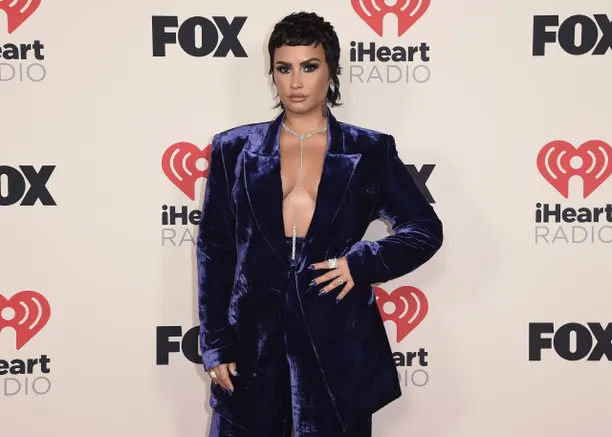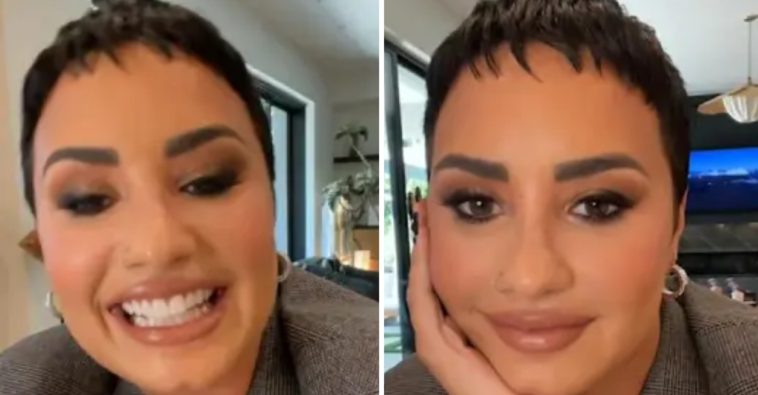Demi Lovato has spoken out about adopting she/her pronouns again – more than a year after she confirmed she wanted to be addressed exclusively using they/them pronouns.
In May 2021, the ‘Cool For The Summer’ singer told her fans that she had changed her pronouns to they/them.
Taking to Instagram, the singer posted a video stating that her change in pronouns “best represents the fluidity I feel in my gender expression”.
Captioning the minute-and-a-half-long video, the 28-year-old wrote: “I am proud to let you know that I identify as non-binary and will officially be changing my pronouns to they/them moving forward.”
She went on: “This has come after a lot of healing and self-reflective work. I’m still learning and coming into myself, and I don’t claim to be an expert or a spokesperson. Sharing this with you now opens another level of vulnerability for me.
“I’m doing this for those out there that haven’t been able to share who they truly are with their loved ones. Please keep living in your truths and know I am sending so much love your way.”
She posted the same video to Twitter, this time with the caption: “Every day we wake up, we are given another opportunity & chance to be who we want & wish to be. I’ve spent the majority of my life growing in front of all of you… you’ve seen the good, the bad, & everything in between.”
In April of this year, fans noticed that Lovato edited her Instagram profile to update her preferred pronouns – adding “she/her” to the previously mentioned “they/them”.

Credit: Sipa US / Alamy
Now, the singer has finally spoken out about her decision to start using she/her pronouns again.
In an interview on the Spout podcast, she said: “I’ve actually adopted the pronouns of she/her again. So for me, I’m such a fluid person that I don’t find that I am… I felt like, especially last year, my energy was balanced, my masculine and feminine energy.
“So that when I was faced with the choice of walking into a bathroom and it said women and men, I didn’t feel like there was a bathroom for me because I didn’t feel necessarily like a woman, I didn’t feel like a man. I just felt like a human.
“That’s what they/them is about. For me, it’s just about like feeling human at yaour core. Recently I’ve been feeling more feminine, and so I’ve adopted she/her again. But I think what’s important is nobody’s perfect. Everyone messes up pronouns at some point, and especially when people are learning. ‘It’s just all about respect.”


